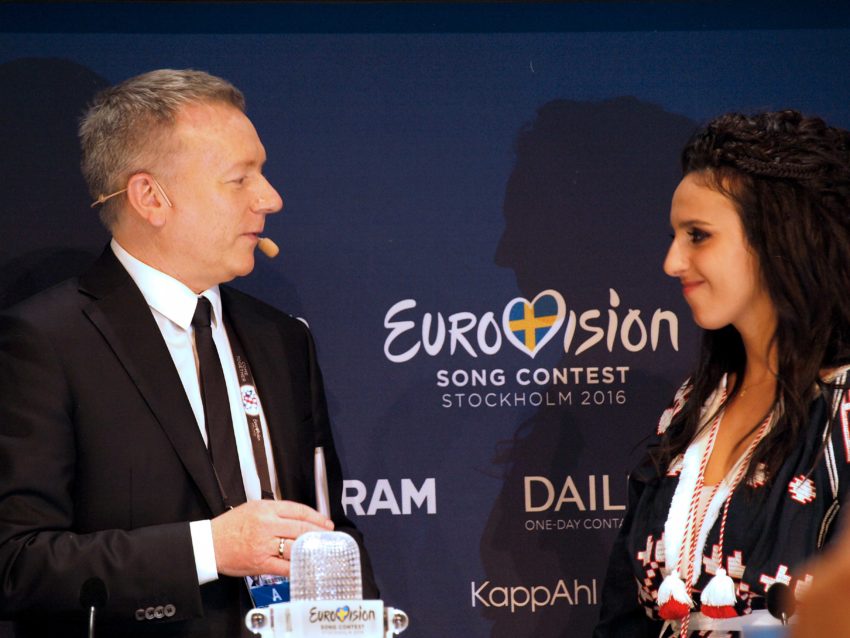
Can a Eurovision host country decide which artists the other countries are to participate with? That is basically what Ukraine wants to do as they further want to expand an already existing list of people not welcome in Ukraine. That list include several Russian artists.
Chicherina and Kobzon, those are the names of two Russian singers who already are banned from entering Ukraine. They have been protesting and performing songs taking Russia’s side in the Crimea conflict. Should Russia choose to send any of them – or the many other artists who might get the same ban – to represent them at the 2017 Eurovision Song Contest in Ukraine, EBU has a problem.
Anton Gerashchenko, a parliament member for the ruling party in Ukraine isn’t afraid to speak his mind, a mind which is quite anti Russian. He wants to update a list of people who aren’t allowed to enter Ukraine, and he is now using the Eurovision Song Contest as a method to get his will. He is completely ignoring the Host Broadcaster Agreement which Ukraine will have to sign guaranteeing the safety of everyone involved in the contest – including the Russian representative – when he says “it is for Ukraine to decide, who’s allowed to cross its border and who is not… in case Kremlin decides, that someone like Chicherina or Kobzon should participate in the song contest, we will simply ban them from entering Ukraine.
He is further adding that the same counts for Russian media as well. In other words, that Ukrainian list should be used to block media not allowed to cover the Eurovision Song Contest from Ukraine sole. Once again, something which goes against the Host Broadcaster Agreement.
We have the right to establish rules on the territory of our country. It’s for Ukraine to decide, who’s allowed to cross its border and who’s not. The same applies to the Russian mass media. Thus, in case Kremlin decides, that someone like Chicherina or Kobzon should participate in the song contest, we will simply ban them from entering Ukraine. We will do this because they’re on our stop list of people threatening national security.
This isn’t the first time Gerashchenko comes with controversial statements. Last year he called for Islamic State to attack Russian pilots involved in the campaign against ISIS in Syria. After Jamala’s victory last Saturday in the 61st Eurovision Song Contest he congratulated her on Facebook saying that Crimea was and will be Ukrainian.
When talking about this list of unwanted people in Ukraine, Anton Gerashchenko also mentioned that the list needs an update as it hasn’t been revised since December 2015.
Already in Stockholm, Russian media talked about the likely possibility that Russia won’t take part in the 2017 Eurovision Song Contest should it be held in Ukraine. We are yet to see if statements like this will encourage Russia furthermore to withdraw or if they instead provoke the country to send one, or maybe more of the acts from the blocked list to represent them.
Below you can watch Jamala performing her winning entry 1944 on the 2016 Eurovision stage in Stockholm’s Globe Arena:




















